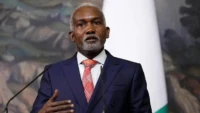Portugal’s center-right government has appointed Álvaro Santos Pereira, former OECD chief economist and ex-economy minister, as the new central bank governor, replacing Mário Centeno. This decision follows months of tension, with Prime Minister Luís Montenegro criticizing Centeno’s economic forecasts as overly pessimistic. Centeno, who previously served as finance minister in a center-left government, had also faced scrutiny over approving a controversial €192 million new central bank headquarters.
Santos Pereira, known for his work during the Eurozone crisis and recent leadership at the OECD, has expressed a cautious stance on future interest rate cuts. His appointment awaits a parliamentary hearing, though no date has been set. The move removes one of the European Central Bank’s more dovish voices and comes amid broader economic concerns and political friction following Costa’s resignation amid scandal. The finance ministry has called for an audit of the central bank’s construction project, adding to the controversy around Centeno’s departure.
Álvaro Santos Pereira, 53, is a dual citizen of Portugal and Canada. He holds a PhD in economics from Simon Fraser University, where he also taught. Between 2011 and 2013, he served as Portugal’s Minister for Economy and Employment, responsible for areas including Industry, Commerce, Services, Tourism, Energy, Public Works, Transportation, and Employment. During his tenure, he led significant labor and competition reforms and proposed popularizing Portuguese custard tarts internationally. Since 2014, he has been with the OECD, first as Director of the Country Studies Branch and later as Chief Economist. In 2024, he was appointed Chief Economist and G20 Finance Deputy of the OECD.
The Portuguese government’s decision to appoint Santos Pereira reflects a strategic shift in monetary policy. His appointment is expected to influence the Bank of Portugal’s approach to economic growth and inflation, aligning with the center-right government’s economic objectives. The nomination process includes a parliamentary hearing, though the exact timing is uncertain due to the summer recess. This development underscores the ongoing political dynamics and debates over the central bank’s role and independence in Portugal.











I wonder how Pereiras background in economics will impact Portugals central bank policies. Exciting times ahead! 🧐🇵🇹 #EconomicChat
Do you think appointing someone from OECD as the new central bank governor will actually ease political tensions in Portugal? Seems like a bold move!
Do we think Pereira can navigate political tensions smoothly or will it be a rocky road for the new Central Bank Governor? 🤔
Do you think a former OECD official as the new central bank governor will help Portugal navigate its political tensions effectively? 🤔
Is Pereira the right choice for the Central Bank? Lets discuss his qualifications and potential impact. What do you think? 🤔
Wow, this move seems like a curveball! Do you think Pereira has what it takes to navigate through these political tensions?
I wonder if Santos Pereiras OECD background will bring stability or more controversy to Portugals central bank. What do you all think?
Do you think Santos Pereiras OECD background will help stabilize Portugals economy, or will political tensions overshadow his appointment? Lets discuss!
Im not sure about this move. Will Pereira be able to navigate political tensions and steer the central bank effectively? Time will tell!